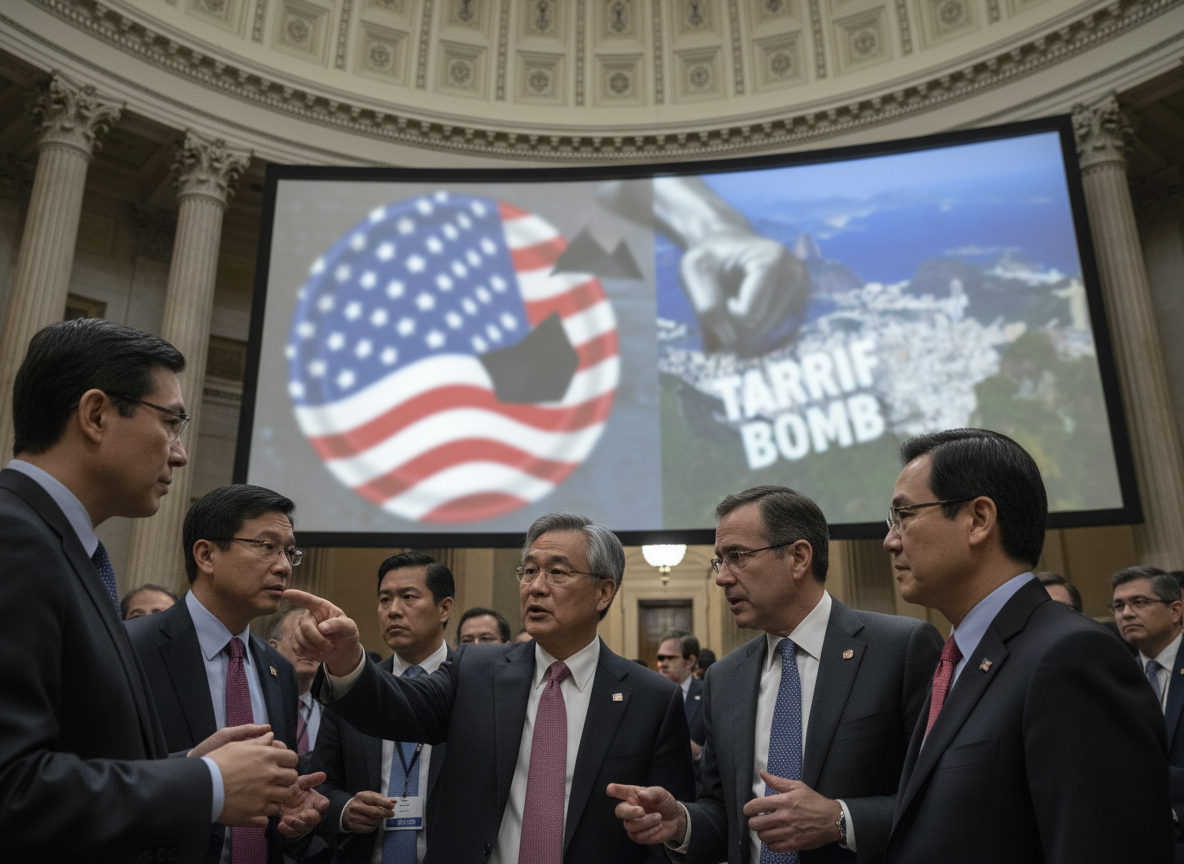GOP Blocks Trump's Brazil Tariff Threat

Senate Reins in Trump's Brazil Tariffs
In a rebuke to the former president, the U.S. Senate voted 52-48 on October 29, 2025, to overturn tariffs imposed by then-President Donald Trump on Brazil. The vote highlights a growing rift within the Republican party regarding Trump's trade policies. Five Republican senators sided with Democrats, proving pivotal in the bill's passage.
The tariff reversal bill stems from Trump's declaration of a national emergency in July, citing the indictment of former Brazilian President Jair Bolsonaro as justification for imposing tariffs on Brazil. Trump's move sparked immediate backlash, prompting the Senate to intervene.
Several factors contributed to the Republican defections. Senators Susan Collins, Mitch McConnell, Lisa Murkowski, Rand Paul, and Thom Tillis broke ranks, joining Democrats in voting for the bill. These senators expressed concerns about the potential negative impact of Trump's tariff policy on the U.S. economy and the deterioration of relationships with allies. Notably, Senate Minority Leader Mitch McConnell's vote signals a possible weakening of Trump's influence within the Republican party.
The Senate vote is expected to have a significant impact on future U.S.-Brazil relations. Trump's tariffs threatened to strain trade ties between the two countries, but the Senate's decision opens the door for improved relations. However, the future of the relationship remains uncertain, contingent on Trump's reaction and the bill's fate in the House.
The tariff reversal bill now moves to the House for a vote. While the outcome in the House is uncertain, the significant Republican defections in the Senate suggest a similar result is possible. If the House also passes the bill, it would represent a substantial blow to Trump's foreign policy agenda.
The situation carries implications for other nations, including South Korea. It serves as a reminder of the dangers of escalating U.S. protectionism and highlights the impact of U.S. domestic political shifts on the international trade order. The South Korean government must closely monitor U.S. policy changes and make every effort to protect its economic interests.
The Senate's decision can be interpreted as a clear challenge to Trump's authority, potentially limiting his policy options in the future. A weakening of Trump's support base within the Republican party could also cloud the party's prospects in the 2028 presidential election.
The passage of this tariff reversal bill is expected to amplify criticism within the U.S. political sphere regarding Trump's unilateral policy decision-making. Furthermore, the emergence of factions within the Republican party seeking to distance themselves from Trump cannot be ruled out. The future of U.S. politics is poised to become even more complex in the wake of this event.
